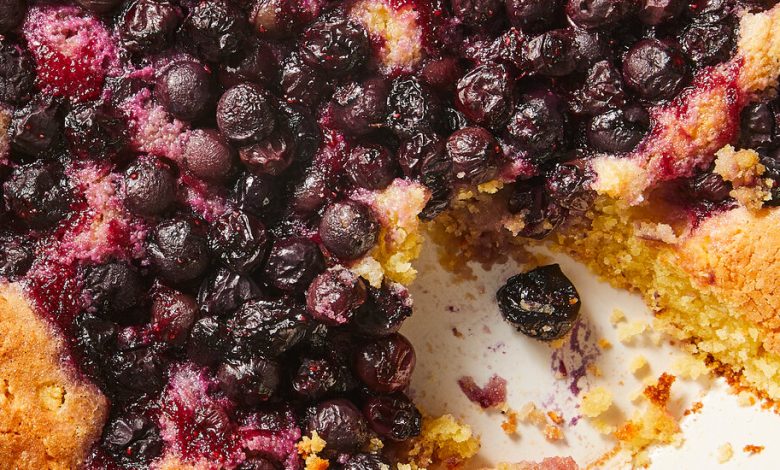The Best Berry Cakes Start With These Two Tips

Summer berries make us all look like great bakers. Their acidity effortlessly balances sweet cake and muffin batters, their juices saturate cobbler tops and trifles, and they willingly reduce into chewy jam at the edge of crisps and crumbles.
Recipe: Blueberry Spoon Cake
I have half a mind to stop writing there, and to just let you follow any good recipe to bliss out on berries. But it’s worth understanding a few things to best unlock their delights and to not lose out if you make any substitutions. When baking calls for the same few ingredients — butter, flour, sugar, fruit — and spins out such varied treats, alchemy is in the details.
To begin, match your berry to the baked good. Strawberries are fragile and extroverted, ready to fall apart without much cooking. Smothered in batter or baked whole, they tend to become flabby and insipid, but, cut into smaller pieces and given passage to reduce, they become syrupy and intense.
Raspberries are relatively dry and hold their own: They favor being scattered on top of and baked inside desserts, instead of being stewed in cobblers and crisps that want to be saucy. (Small summer blackberries also cook like raspberries.)
Blueberries are the most reserved of the bunch. Sprinkled into muffins and pound cakes, they keep to themselves, retaining their shape and producing sliceable, portable sweets. They need longer cooking to break their inky skins and integrate themselves into batters.
Choose your flour with your fruit and its juices in mind. An all-purpose white flour is most absorbent, good for bakes that need to hold their shape (pound cakes, muffins). Less absorbent flours, like whole wheat, almond meal or cornmeal, leave more fruit juices in circulation.
This cornmeal cake lets the brightness of blueberries lead and encourages the fruit to surrender its juices. It calls for precooking the berries, then pouring them over a cornmeal batter. As it bakes, some blueberries sink and form a stewy bottom, while others bubble into chewy jam. The result looks like an upside-down cobbler or a muffin without its middle. It isn’t too sweet, and what it lacks in structure, it makes up for with its juiciness — so much that it must be spooned.
Follow New York Times Cooking on Instagram, Facebook, YouTube, TikTok and Pinterest. Get regular updates from New York Times Cooking, with recipe suggestions, cooking tips and shopping advice.
